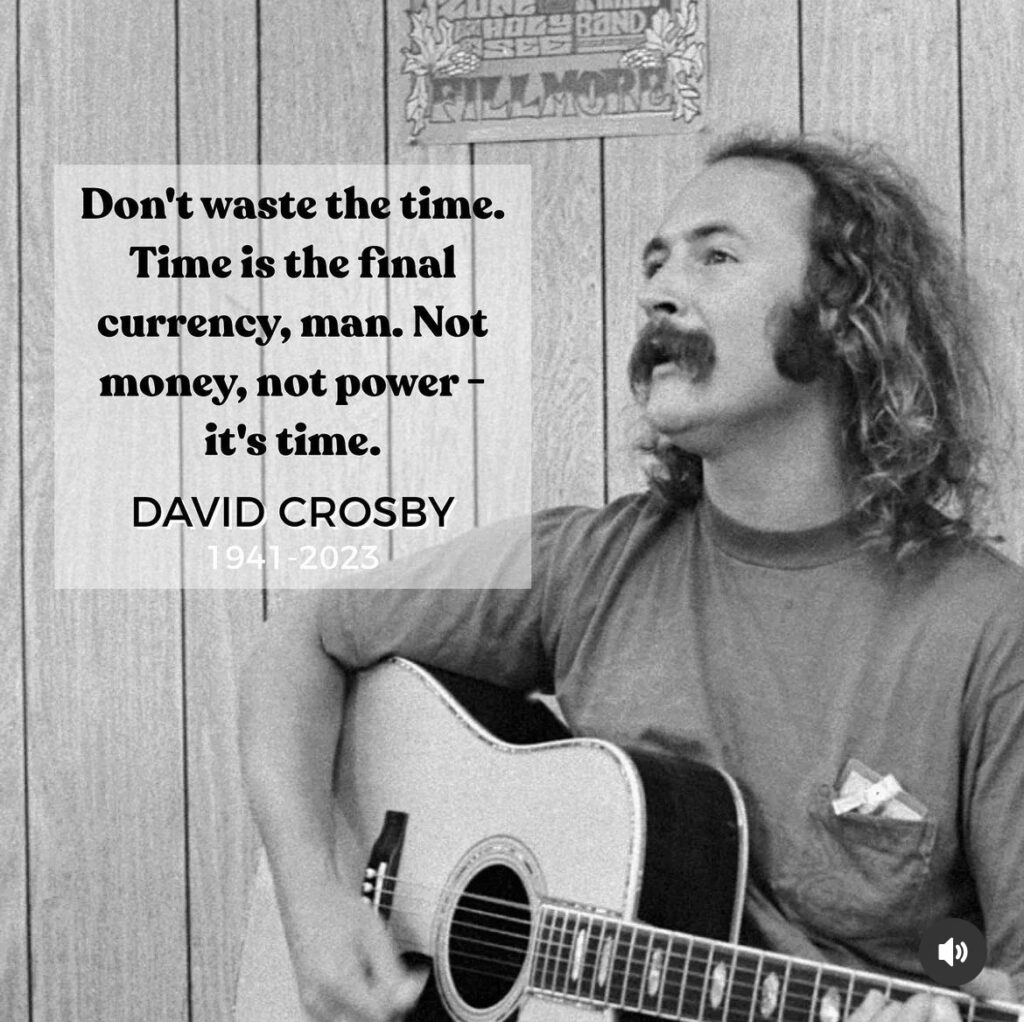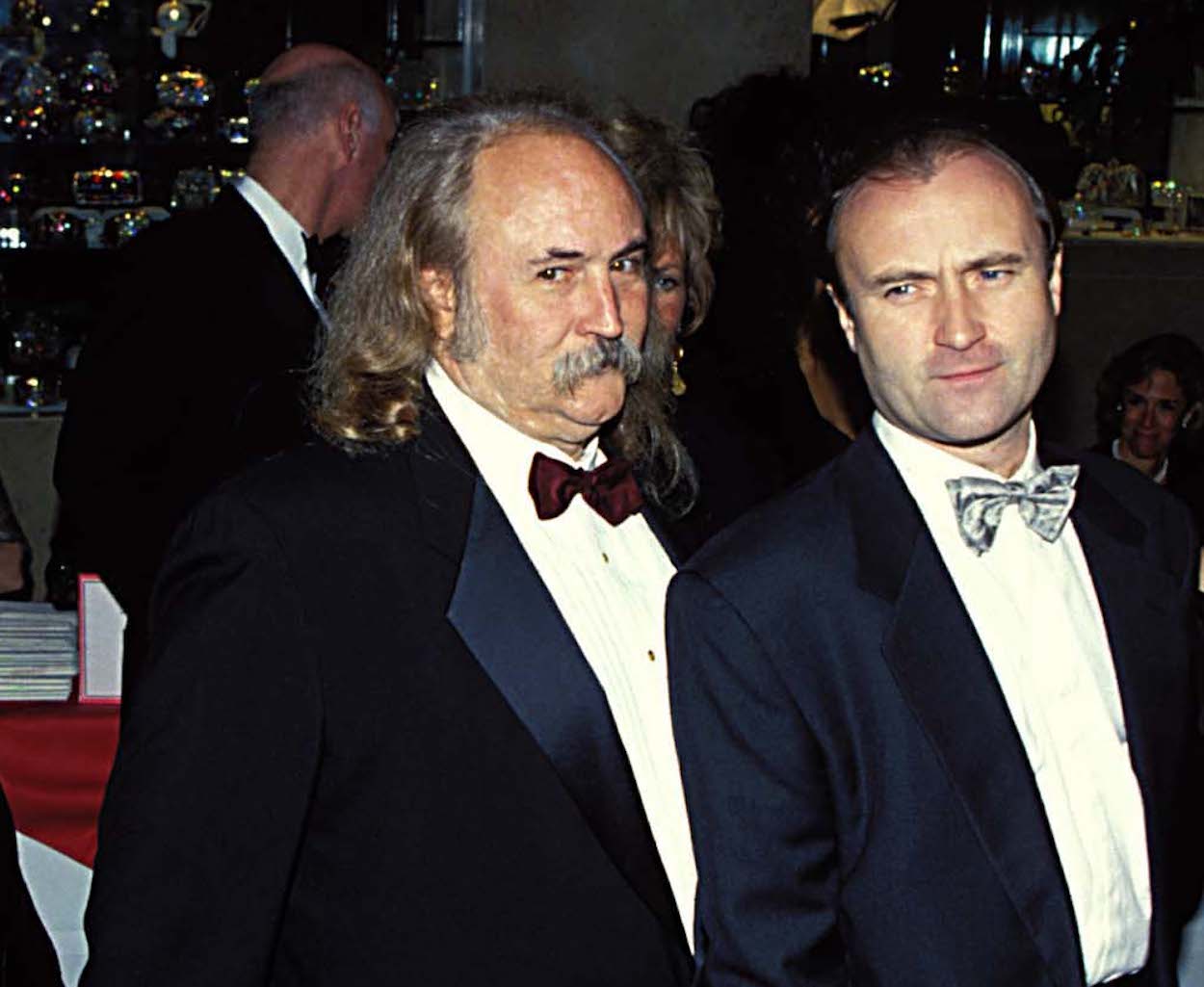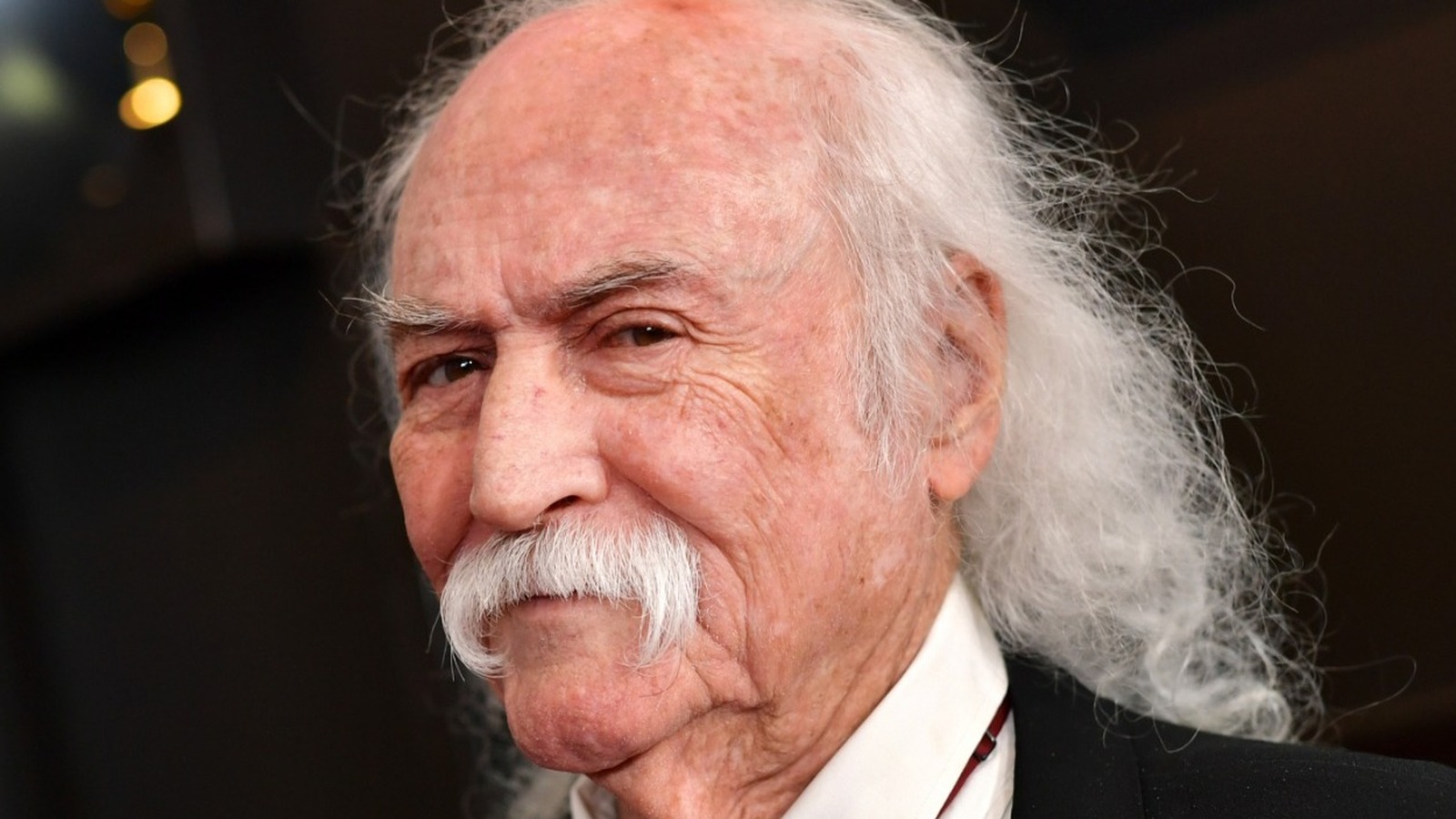Who Paid For David Crosby's Transplant? Unraveling A Long-Standing Question
For many, the name David Crosby brings to mind a voice that helped shape generations of music, a true legend of folk rock. Yet, beyond the timeless melodies and poetic lyrics, a particular question has, for a long time, lingered in the public mind, a sort of persistent echo that still sparks curiosity. This question, you know, touches on a very personal and life-altering event in his story: who actually covered the substantial costs for his vital liver transplant?
It's a query that, in a way, goes beyond mere curiosity about a celebrity's personal finances. It opens up a wider conversation, you see, about healthcare access, the immense price tag of life-saving medical procedures, and the public's perception of fairness, especially when someone famous is involved. People often wonder about these things, don't they?
So, we're going to take a look at this enduring question, exploring the circumstances around David Crosby's transplant, what he himself said about the funding, and why this particular aspect of his life story continues to be a point of discussion for many people, even years later. It's almost like a puzzle, in some respects, that people still want to piece together.
- Telly Savalas Net Worth
- Matt Damon Jimmy Kimmel Feud
- Cassie Ventura Net Worth 2025
- Wilt Chamberlain Net Worth
- Darcy Lapier Spouse
Table of Contents
- David Crosby: A Life in Music and Beyond
- The Question That Lingered: David Crosby's Liver Transplant
- Unpacking the Costs of a Life-Saving Procedure
- David Crosby's Own Account: Who Footed the Bill?
- Public Perception and the "Queue Jumping" Controversy
- The Broader Conversation: Healthcare Funding and Transparency
- Frequently Asked Questions About David Crosby's Transplant
David Crosby: A Life in Music and Beyond
David Van Cortlandt Crosby, a true icon, was a singer, songwriter, and musician whose career spanned more than fifty years. He was, in fact, a founding member of two incredibly influential rock bands: The Byrds and Crosby, Stills & Nash (CSN), and later Crosby, Stills, Nash & Young (CSNY). His distinctive harmonies and thoughtful songwriting left a very significant mark on the music world, and his voice, well, it was unmistakable. He had a way of just captivating an audience, that is for sure.
Beyond his musical achievements, Crosby's life was also marked by personal struggles, including battles with substance abuse. These challenges, sadly, led to serious health issues, which eventually made a liver transplant a crucial necessity for his survival. It was a very difficult period for him, and for those who cared about him, too.
Personal Details and Biography
| Full Name | David Van Cortlandt Crosby |
| Born | August 14, 1941, Los Angeles, California, U.S. |
| Died | January 18, 2023, Santa Ynez, California, U.S. |
| Occupations | Singer, songwriter, musician |
| Notable Bands | The Byrds, Crosby, Stills & Nash, Crosby, Stills, Nash & Young |
| Key Instrument | Guitar |
| Health Event | Liver Transplant (1994) |
The Question That Lingered: David Crosby's Liver Transplant
In 1994, David Crosby received a liver transplant, a life-saving procedure that became a significant turning point in his health journey. This operation, as a matter of fact, was performed at UCLA Medical Center. The news of his transplant quickly spread, sparking a public conversation that, for some, focused less on his recovery and more on the financial aspects and the perceived fairness of the process. It's almost like people felt a need to understand how such a thing could happen.
- Liam Neeson New Wife
- Jeff Bridges Health 2025
- George Foremans Net Worth
- Bryan Cranston Family
- Justin Theroux Height
The reason this question about who paid for David Crosby's transplant has persisted for so long is, in part, because of the high profile of the individual involved and the very substantial costs associated with such advanced medical care. People often wonder about how these things are managed, especially when the price tag is so incredibly high. There's a natural curiosity about it, you know.
There was also, perhaps, a degree of public debate surrounding the ethics of celebrity transplants, particularly for individuals with a history of substance abuse. This added another layer of complexity to the public's interest, making the question of payment even more prominent. It was a time when many were discussing these sorts of issues, basically.
Unpacking the Costs of a Life-Saving Procedure
When we talk about something like a liver transplant, we're talking about a medical procedure that carries an incredibly high price tag. The cost of something like this isn't just the surgery itself; it includes, you know, the extensive pre-transplant evaluations, the donor organ, the actual operation, and then the lifelong follow-up care, including very expensive anti-rejection medications. It's a whole package of expenses, in a way, that can easily run into hundreds of thousands of dollars, or even more, apparently.
For most people, paying for such a massive medical bill involves a mix of different approaches. Typically, health insurance plays a very significant role, covering a large portion of the expenses, though patients still often have to pay for deductibles, co-pays, and other out-of-pocket costs. Some individuals might be able to pay the whole fee at one time if they have substantial personal wealth, but for many, it's about navigating various payment plans or seeking financial assistance. It's not usually a simple, straightforward payment, you know, like buying an apple, which just costs you 50 pence.
Sometimes, too, charitable organizations or specific hospital funds step in to help cover the gaps, especially for those who need to pay for somebody to do something as critical as a transplant but lack the necessary resources. The process of costing generally refers to how one decides what the price is going to be, and for a transplant, that price is just enormous. It's a complex system, and many different parties might be involved in making a payment or helping to pay for the lessons, so to speak, of survival.
David Crosby's Own Account: Who Footed the Bill?
David Crosby himself was quite consistent in his statements regarding who paid for his liver transplant. He maintained, very clearly, that he personally paid for the entire procedure. He was often quite direct about this, aiming to dispel any rumors that public funds or special treatment were involved. He would say, in fact, that he paid for the lessons for next month, meaning he covered the full cost of his medical care.
However, it's also widely known that his close friend and fellow musician, Phil Collins, provided significant financial assistance during this time. While Crosby insisted he paid for it, it's plausible that Collins's help was instrumental in enabling him to do so. This is similar, in a way, to how some parents might pay for their child to go to Canada, providing the necessary funds for a big life event. It's a helping hand, basically, that makes a major difference.
The distinction between "making a payment" and "paying for" something in its entirety is an interesting one here. Crosby's statements suggest he took full responsibility for the bill, even if the source of the funds included assistance from a friend. It implies that he, as the patient, was the one ultimately responsible for ensuring the full amount was covered, whether that was by cash payment directly from his own accounts or with support that he then managed. It's not always a simple, single transaction, you know, especially with such a huge sum involved.
Public Perception and the "Queue Jumping" Controversy
When David Crosby received his transplant, there was a noticeable buzz in the media and among the public, and it wasn't all positive. A significant part of the discussion revolved around the idea of "queue jumping." People often wondered if his celebrity status allowed him to bypass the long waiting lists that many others faced for life-saving organs. It's a very common concern when famous people receive specialized medical care, you know, that they might somehow get preferential treatment.
Crosby, for his part, repeatedly denied these accusations. He stated, quite adamantly, that he was on the same waiting list as everyone else and that his turn came through the standard process, based on medical need and compatibility, not on his fame or fortune. He emphasized that he had followed all the rules, just like anyone else seeking a transplant. It was, in a way, a very frustrating time for him to have to constantly address these rumors.
This situation really highlighted the tension between public perception and the realities of the healthcare system. The idiom "you pays your money and you takes your chances" might feel relevant here, not just for the patient taking a chance on a complex surgery, but for the public, too, as they tried to make sense of a system where outcomes can seem unpredictable and access sometimes unfair. It raised important questions about transparency and equity in medical care, which, frankly, are still talked about today.
The Broader Conversation: Healthcare Funding and Transparency
David Crosby's transplant and the subsequent questions about its funding actually fit into a much larger conversation about healthcare costs and how medical care is paid for in general. The sheer expense of procedures like organ transplants means that for most people, personal savings alone are simply not enough. This brings up the topic of how various entities, sometimes even a third party, become involved in the payment process. Roy asked the SPLC to search for a donor who could pay some money to a a third party in order for Bryon to get rid of his tattoos, and while that's a different scenario, it illustrates the concept of complex financial arrangements in medical contexts, you know?
The role of insurance companies, government programs, and philanthropic efforts in funding critical care is incredibly complex. For a celebrity, the perception can often be that they have unlimited resources, but the reality of medical bills can be staggering for anyone, regardless of their public profile. It's a system where the cost of something is the price to be paid for it, and that price is often immense, requiring a lot of planning and different sources of money.
Ultimately, the lingering question about who paid for David Crosby's transplant serves as a reminder of the ongoing challenges and debates surrounding healthcare funding, access, and fairness. It prompts us to think about how we, as a society, ensure that life-saving treatments are available and affordable for everyone, not just those with significant financial means or celebrity status. It's a very important discussion, to be honest, that continues to evolve.
Frequently Asked Questions About David Crosby's Transplant
Here are some common questions people often ask about David Crosby's liver transplant:
- When did David Crosby have his liver transplant?
David Crosby received his liver transplant in November 1994. He had been suffering from liver disease, which was a result of his long-term battles with hepatitis C and substance abuse. It was a very critical time for him, actually.
- What caused David Crosby to need a liver transplant?
His need for a transplant stemmed from advanced liver disease, primarily caused by chronic hepatitis C and years of alcohol and drug abuse. These factors severely damaged his liver, making the transplant a necessary measure for his survival. It was a culmination of many years of health challenges, you know.
- Did David Crosby say he paid for his transplant himself?
Yes, David Crosby consistently stated that he personally paid for his liver transplant. While there were rumors and public speculation about how the procedure was funded, he always maintained that he covered the costs himself, possibly with significant financial help from his friend Phil Collins. He was quite clear about it, in fact.
The discussion around David Crosby's liver transplant, and particularly the question of who paid for it, really highlights some enduring aspects of public life and healthcare. It shows how personal health matters can become subjects of wide interest, and how, in some respects, the mechanics of paying for incredibly expensive medical care are often quite complex and not always what people imagine. It makes you think about the definitions of payment and who truly foots the bill in these sorts of situations. You can learn more about payment processes on our site, and if you are interested in the nuances of how people pay for things, we have more information there too. For additional insights into the costs associated with organ transplants in the United States, you might find information from organizations like the National Foundation for Transplants very helpful, as they often provide data on these significant expenses. It's a lot to consider, really.
- Jason Gould Net Worth
- Rapper Timbaland Net Worth
- Woody Harrelson And Matthew Mcconaughey Movie
- Joe Satriani Net Worth
- Peter Dinklage Apocalypse Movie

David Crosby: A Liver Transplant Hero - I Help C

Did Phil Collins Pay for David Crosby’s Liver Transplant?

David Crosby's Ancestors Helped Build The United States